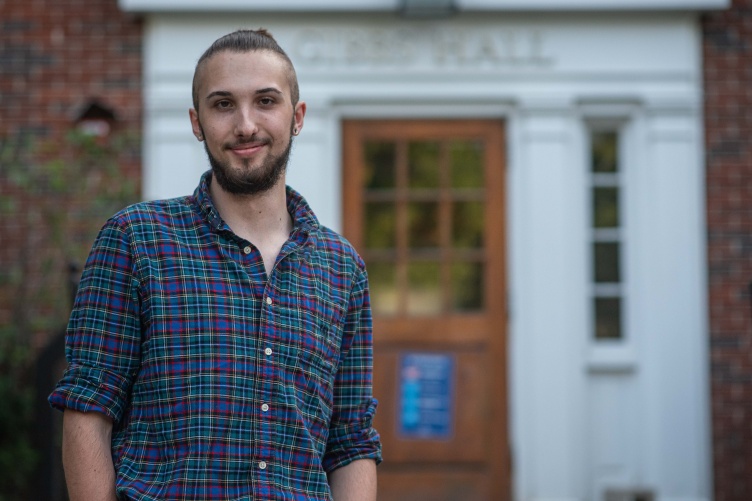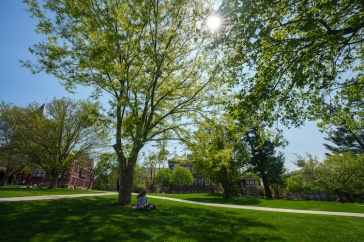
A desire to better understand how people think led Gordon Unzen ’21 to major in psychology. He added philosophy after taking social and political philosophy, and then justice studies when he realized it complemented the other two fields and gained him access “to the world of law” through classwork and internships.
So, a triple major and an interest in law. And he still has another semester to go, leading one to wonder what else he might try to achieve.
“I took an online intro to philosophy class in high school that I really enjoyed, and my mom has a doctorate in counseling psychology, which introduced me to psychology early on in life,” Unzen says. “My plan has always been to apply to law school after I complete my undergraduate degree, so I had a lot of flexibility with choosing majors.”
His goal for as long as he can remember has been to practice criminal law, but he has developed an interest in civil rights and constitutional law. He now views practicing law as the beginning of his career. He has already been accepted at the UNH Franklin Pierce School of Law and New England Law.
“Our country requires a lot of institutional change to address the racism, sexism, classism and ableism that America is founded on and perpetuates systemically,” Unzen says. “I hope to spend my career, in whatever form it takes, advocating for that change.”
A Hamel Scholar and the recipient of a Summer Undergraduate Research Fellowship (SURF), the New Hampshire resident’s research was titled “The Impacts of Artificial Intelligence and Big Data for Criminal Law.” He wanted to gain understanding of the artificial intelligence (AI) field.
"Our country requires a lot of institutional change...I hope to spend my career, in whatever form it takes, advocating for that change.”
“I wanted to analyze the theories of justice and punishment, to outline the ways that AI is currently and will impact criminal law and to understand the impacts of AI on the broader realm of governance,” Unzen says.
The result was a 140-page reflection on such areas as the philosophy of justice and punishment, the history and future of artificial intelligence, the applications of algorithms in the criminal justice system, AI punishment and futurism and AI governance with respect to liberal democracy.
“I learned how AI is already being used to change criminal justice from increased and more efficient surveillance to the faulty predictions of future criminals and recidivism rates,” he says. “For instance, regarding surveillance and crime identification, algorithms have been developed to identify faces, license plates and crime hotspots.
“The future of criminal justice will be greatly influenced by technology, specifically artificial intelligence,” Unzen adds. “Rather than using technology to speed up the procedures of a bad criminal justice system, we must look to implementations that improve our ability to detect violent and white collar crimes, to interact with and build up communities and to make decisions where human cognitive biases may otherwise interfere with the judicial process.”
Of being a Hamel Scholar, he says, "For me, the scholarship itself was pivotal in allowing me to study at UNH rather than having to do community college and transferring. The money has covered most of my undergraduate tuition and thus I feel good about continuing my education since I was able to avoid a large financial burden."
Unzen has been working as a research assistant with professor Ellen Cohn and her graduate students in the legal socialization laboratory since his sophomore year. Using data from the New Hampshire Youth Survey study, he conducted research on bullying behavior. He is now involved with an independent project predicting prosocial and antisocial COVID pandemic behaviors. He is also working on an honors thesis in psychology using party affiliation and political ideology to predict attitudes towards justice.
Unzen is a co-organizer of the Socratic Society and co-president of Psi Chi, the student organization for the National Psychology Honors Society. He also is associated with the UNH Young Social Democrats and is a resident assistant in Gibbs Hall.
-
Written By:
Jody Record ’95 | Communications and Public Affairs | jody.record@unh.edu



















































